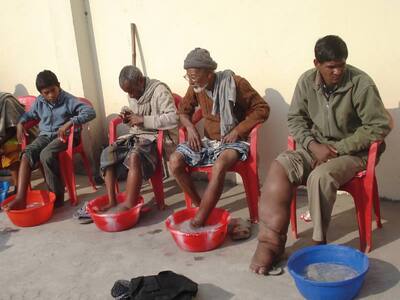
Neglected Tropical Diseases can spread through different modes like contaminated water, insect vectors and poor hygiene practices. These factors insinuate that poverty and lack of hygiene enhances NTD infection.
With the increasing health awareness, people find it easy to keep themselves aware of certain types of diseases and conditions but there is also a type that lies in shadows and is less known. Neglected Tropical Diseases belong to the category of lesser known diseases that do have the capability to impact the world in a profound way. NTDs are a group of 20 conditions that are mostly prevalent in tropical areas. They are caused by pathogens including viruses, bacteria, parasites, fungi and toxins. These diseases thrive in areas with poor sanitation, limited access to clean water, and inadequate healthcare infrastructure. Regions like sub-Saharan Africa, South Asia, and parts of Latin America bear the brunt of these diseases due to the supportive environmental conditions. Diseases including Chagas disease, leishmaniasis, lymphatic filariasis, schistosomiasis, and soil-transmitted helminth infections are some of the examples of NTDs.
Let’s Shed Some Light On Its Transmission And Impact!
Neglected Tropical Diseases can spread through different modes like contaminated water, insect vectors and poor hygiene practices. These factors insinuate that poverty and lack of hygiene enhances NTD infection. Mostly, poverty stricken areas are more likely to be impacted by NTDs because their living conditions invite such diseases. Economic activities like fishing, nomadism or livestock may enhance NTDs like schistosomiasis, Human African Trypanosomiasis (HAT), and leishmaniasis.
What Are The Challenges In Tackling Diagnosis And Treatment Related Problems?
Lack of diagnostic tools and limited availability of skilled healthcare professionals in the affected regions makes it difficult to diagnose the disease. Plus, the complexity of diseases make it impossible to find a proper treatment as various pathogens are involved and also the complex life cycles these diseases follow.
Why Are These Diseases Termed As ‘Neglected’?
According to the World Health Organization (WHO), these diseases are called neglected because they are absent from the global health agenda. Mostly the neglected population who stay far from educational opportunities and healthcare facilities tend to get it. The vicious cycle of poverty and NTDs further exacerbate due to these reasons.
What Is Being Done To Fight NTDs Globally?
Global initiatives are necessary to tackle NTD’s perpetual occurrence. The World Health Organization (WHO) has played a pivotal role in putting efforts to combat these diseases. Collaborative partnerships between governments, non-governmental organizations, and pharmaceutical companies helped in distributing suitable medicines.
The Path Forward
Raising awareness about NTDs is crucial to breaking the cycle of neglect. Advocacy efforts are growing, shedding light on the silent suffering of millions affected by these diseases. Governments, philanthropists, and public health institutions are recognizing the importance of addressing NTDs to achieve sustainable development goals and improve the well-being of marginalized communities.
READ RELATED: Apple's Warning on Sleeping With Smartphones
What Are The Innovation Being Done To Tackle NTDs
Innovative approaches are coming forward to combat NTDs. For instance, the use of mass drug administration (MDA) programs, insecticide-treated bed nets, and improved sanitation practices are proving effective in reducing the prevalence of certain NTDs. Research and technological advancements are also paving the way for new diagnostics, treatments, and prevention strategies.
A Call To Action
Addressing Neglected Tropical Diseases requires a collective effort from the global community. Donor support, research investments, and policy changes are critical in the fight against these diseases. By addressing NTDs, we not only alleviate the suffering of those affected but also contribute to social and economic development on a larger scale.
Conclusion
Neglected Tropical Diseases may be lesser-known, but their impact on human health and well-being is significant. By shedding light on these diseases, we can drive change, advocate for increased funding, and work towards a future where no one’s health is compromised due to preventable and treatable conditions. The battle against NTDs is a testament to the resilience of human determination and the potential to make a lasting positive impact on the lives of millions.
Total Wellness is now just a click away.
Follow us on
Don’t Miss Out on the Latest Updates.
Subscribe to Our Newsletter Today!
window.addEventListener(‘load’, (event) => {
$(‘#commentbtn’).on(“click”,function(){
(function(d, s, id) { var js, fjs = d.getElementsByTagName(s)[0]; if (d.getElementById(id)) return; js = d.createElement(s); js.id = id; js.src = “//connect.facebook.net/en_US/sdk.js#xfbml=1&version=v2.3”; fjs.parentNode.insertBefore(js, fjs);}(document, ‘script’, ‘facebook-jssdk’));
$(“.cmntbox”).toggle();
});
});









